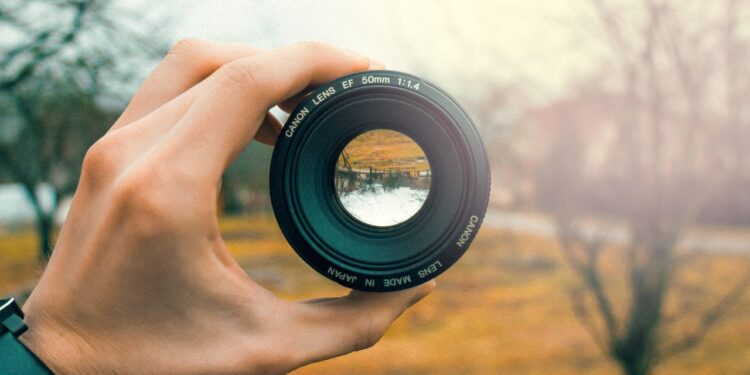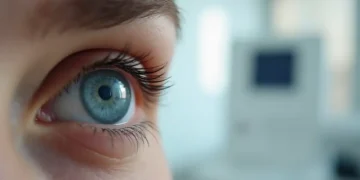When thinking about your overall well-being, consulting an ophthalmologist in Louisville or elsewhere might not be the first thing on your mind. However, your eye health is far more integral to general wellness than you might expect. From stress levels to cognitive function and even the quality of your sleep, your vision can serve as both a window and a barometer to your body’s overall condition. This article explores the surprising ways eye health intersects with various aspects of life, guiding you toward better health and sharper sight.
Table of Contents
Stress and Your Eyes: The Hidden Connection
It’s no secret that stress can wreak havoc on the body, but it’s particularly problematic for your eyes. Chronic stress leads to elevated cortisol levels, which can affect the optic nerve and impair blood flow to the eyes. This disruption in blood flow can cause a range of visual disturbances such as blurry vision, eye twitching, and even persistent headaches. Over time, these issues can progress into more significant concerns if left unmanaged.
Stress doesn’t just affect the eyes on a surface level; it can also worsen existing eye conditions. For instance, people with glaucoma—a condition characterized by increased pressure in the eye—may find that stress exacerbates the condition, accelerating the potential for vision loss. Moreover, chronic stress can lead to habits like excessive screen time, which compounds eye strain and dryness.
To combat stress and its negative impact on eye health, it’s important to adopt practices that promote relaxation and mindfulness. Deep breathing exercises, regular breaks from screens, and even light physical activities such as yoga can significantly lower cortisol levels and benefit your vision. Taking time to unwind doesn’t just rejuvenate your mind; it also preserves your sight.
Vision and Brain Power: Why Eye Health Is Key to Cognitive Sharpness
Your eyes don’t just let you see the world; they play an essential role in how your brain functions. The eyes and the brain are deeply connected, and any change in vision can affect cognitive processes. Here are some key aspects of how vision impacts brain health:
- Direct Brain Connection: The eyes are directly linked to the brain through the optic nerve, which transmits visual data to the brain’s visual cortex. This makes them an extension of the brain and integral to the processing of external information.
- Cognitive Decline Risk: Research indicates that vision impairment is associated with an increased risk of cognitive decline and neurodegenerative conditions such as dementia. When vision is compromised, the brain receives less visual information, which can accelerate cognitive aging and lead to a decline in mental acuity.
- Sensory Input Reduction: Reduced visual input places more strain on the brain. The additional effort needed to make sense of compromised visual signals can lead to cognitive fatigue and decrease mental alertness over time.
- Mental Stimulation: Activities that engage both visual and cognitive functions, such as reading, puzzles, or even playing video games, can keep the brain sharp and help preserve eyesight. These activities stimulate various brain regions, keeping them active and responsive.
Ensuring regular eye exams and addressing any vision impairments early on can support better cognitive health as you age. By doing so, you’re not just protecting your eyesight but also making an investment in your brain’s long-term performance.
Sleep and Sight: How a Good Night’s Rest Benefits Your Vision
The importance of restful sleep extends beyond waking up refreshed; it plays a crucial role in maintaining eye health. During sleep, your eyes are busy undergoing a natural repair process. Lubrication of the eyes is replenished, which helps clear out irritants like dust, allergens, and other environmental particles accumulated throughout the day. This not only keeps your eyes moisturized but also prevents conditions like dry eye syndrome.
When you don’t get enough sleep, your eyes may struggle to stay hydrated and may develop issues like eye strain, spasms, and even blurred vision. Chronic sleep deprivation can have more severe consequences, such as damaging the blood vessels in the eyes, leading to burst capillaries and redness. Additionally, poor sleep impacts the nervous system, making your eyes more sensitive to light and reducing their ability to perceive contrasts, which can make tasks like night driving particularly challenging.
To maintain good eye health, aim for 7-8 hours of quality sleep per night. Establishing a bedtime routine that includes dimming lights and avoiding screens at least an hour before bed can improve your sleep quality and, by extension, benefit your eyesight.
Eat Your Way to Healthy Eyes: Nutrition Tips for Stronger Vision
Your diet is just as important for your eyes as it is for the rest of your body. Nutrient-rich foods can help maintain vision and protect against common eye problems. Here are key nutrients that promote eye health and where to find them:
- Vitamin A: This vitamin is crucial for maintaining a healthy cornea, the clear front surface of the eye, and it supports good night vision. Vitamin A can be found in carrots, sweet potatoes, and animal products like liver.
- Lutein and Zeaxanthin: These antioxidants help filter out harmful blue light and combat oxidative stress, reducing the risk of cataracts and macular degeneration. Dark leafy greens such as spinach, kale, and collards are excellent sources.
- Omega-3 Fatty Acids: Omega-3s are beneficial for tear production, helping to prevent dry eyes. They’re found in fish like salmon, mackerel, and sardines, as well as in flaxseeds and chia seeds.
- Vitamin C: This antioxidant strengthens the blood vessels in the eyes and helps prevent cataracts. Vitamin C is plentiful in citrus fruits, strawberries, kiwi, and bell peppers.
- Zinc: Essential for transporting vitamin A from the liver to the retina to produce melanin, a protective pigment in the eyes. Zinc is found in nuts, seeds, legumes, and shellfish.
Incorporating these foods into your diet can significantly improve your eye health. It’s also important to stay hydrated to help maintain the moisture balance in your eyes, reducing the risk of dryness and irritation.
Aging Gracefully: Protecting Your Eyes Through the Years
Aging can bring a host of challenges, especially for eye health. Age-related conditions such as macular degeneration (AMD) and cataracts are common, but they aren’t inevitable. By adopting preventive measures, you can minimize the risk of developing severe vision problems as you get older.
Routine eye exams are your first line of defense in maintaining vision. An ophthalmologist can detect early signs of age-related conditions and recommend treatment plans or lifestyle changes to slow their progression. Early detection of issues like AMD and cataracts can lead to more effective management, preserving your vision for longer.
Protecting your eyes from harmful elements is also vital. Wearing sunglasses that block 100% of UVA and UVB rays, as well as using blue light filters on digital devices, can reduce eye strain and slow down the aging of the eyes. Physical activity is another important factor; regular exercise boosts blood circulation, which in turn helps deliver essential oxygen and nutrients to the eyes, reducing the risk of diseases like glaucoma.
Combining these habits with a balanced diet, proper sleep, and stress management can go a long way in preventing age-related vision loss. It’s about taking proactive steps now for better eye health in the future.
Why Prioritizing Your Eye Health Is an Investment in Your Future
Your eyes do much more than help you navigate the world; they reflect and impact your overall health. The connection between stress, cognitive function, sleep, nutrition, and aging all underscores the importance of taking a holistic approach to eye care. By integrating habits that support not just eye health but your general well-being, you set the stage for a longer, healthier life. So, the next time you think about scheduling that eye exam, remember it’s about much more than checking your vision—it’s an investment in your entire well-being.


 Home
Home









